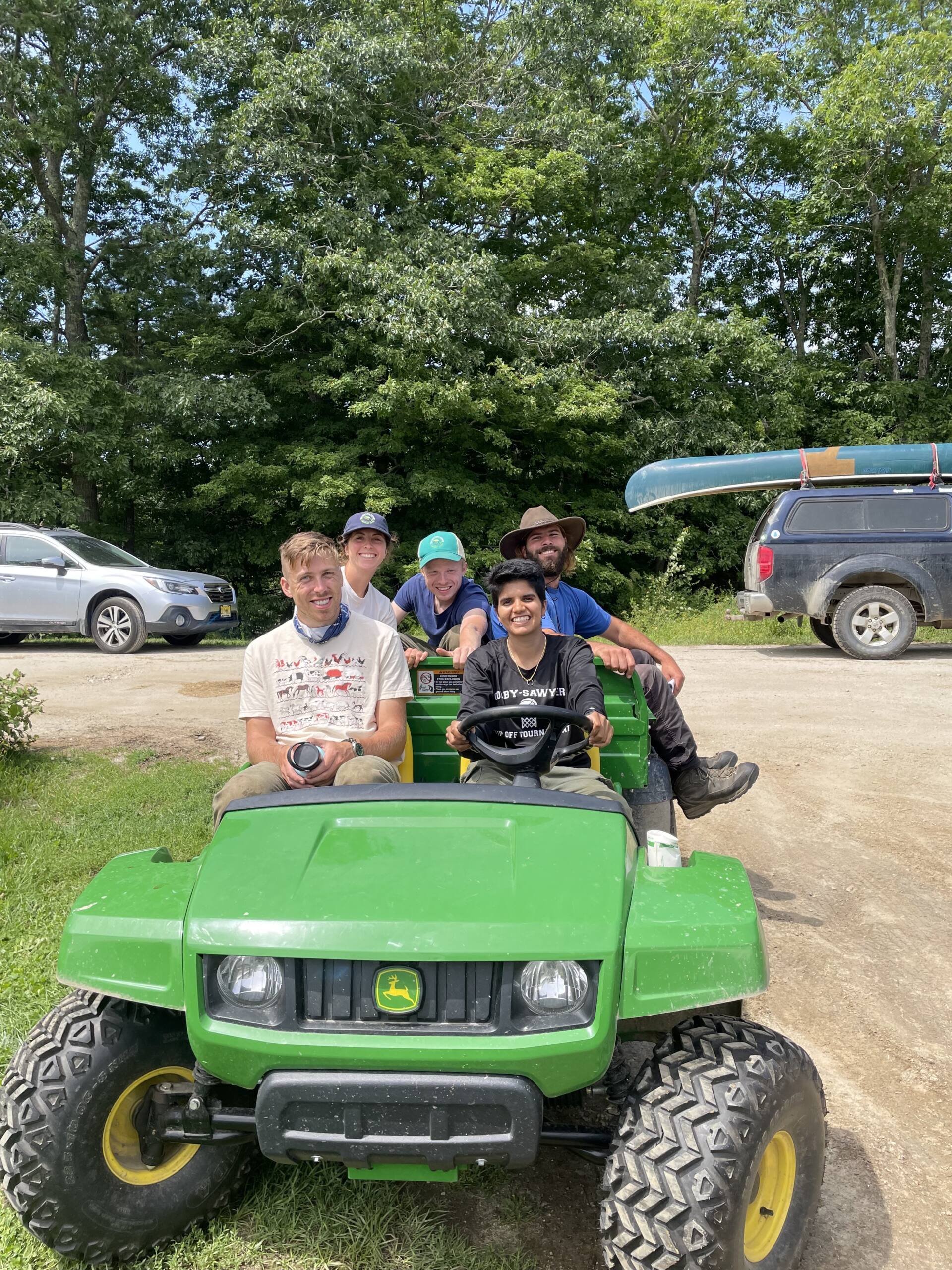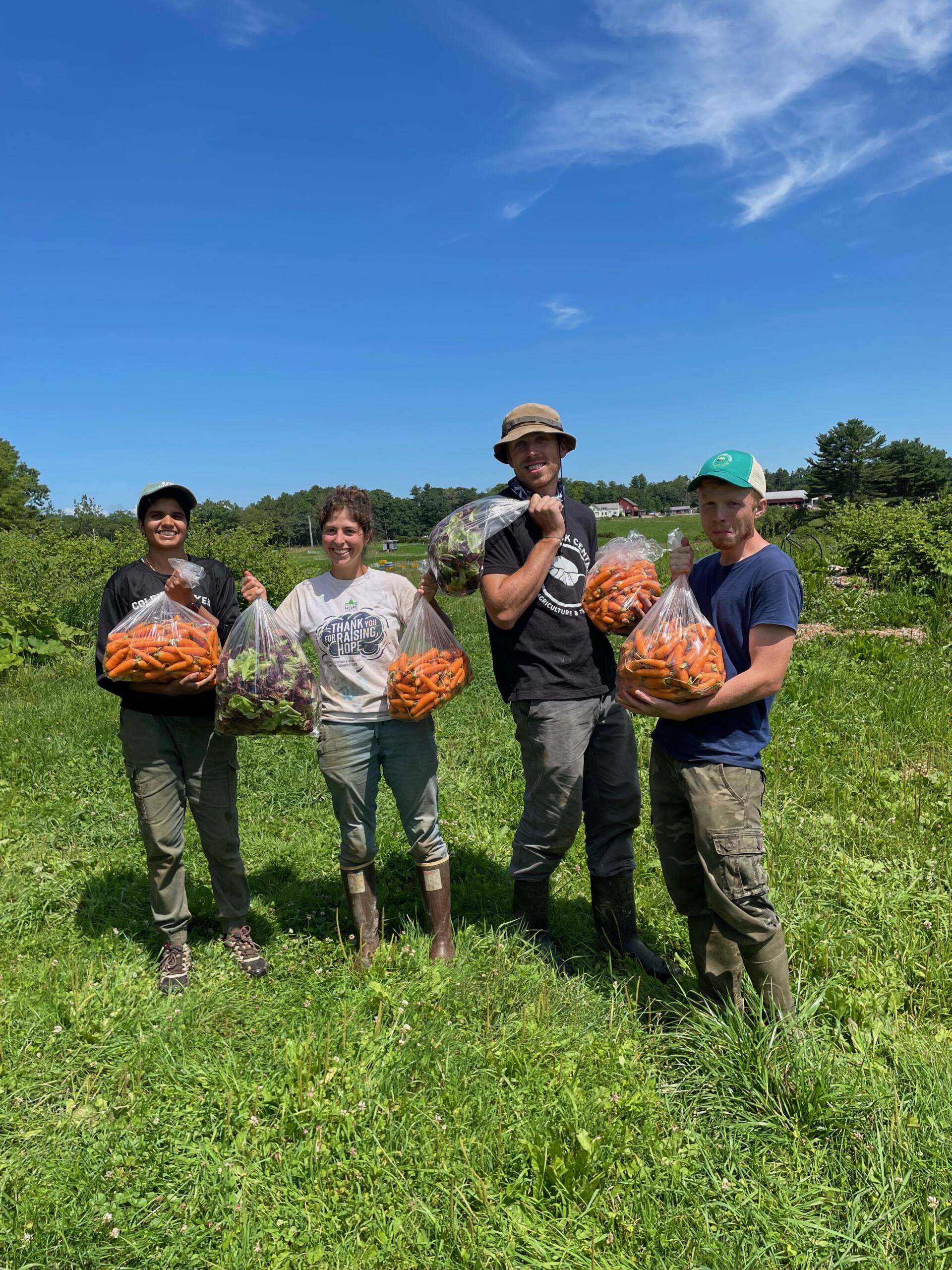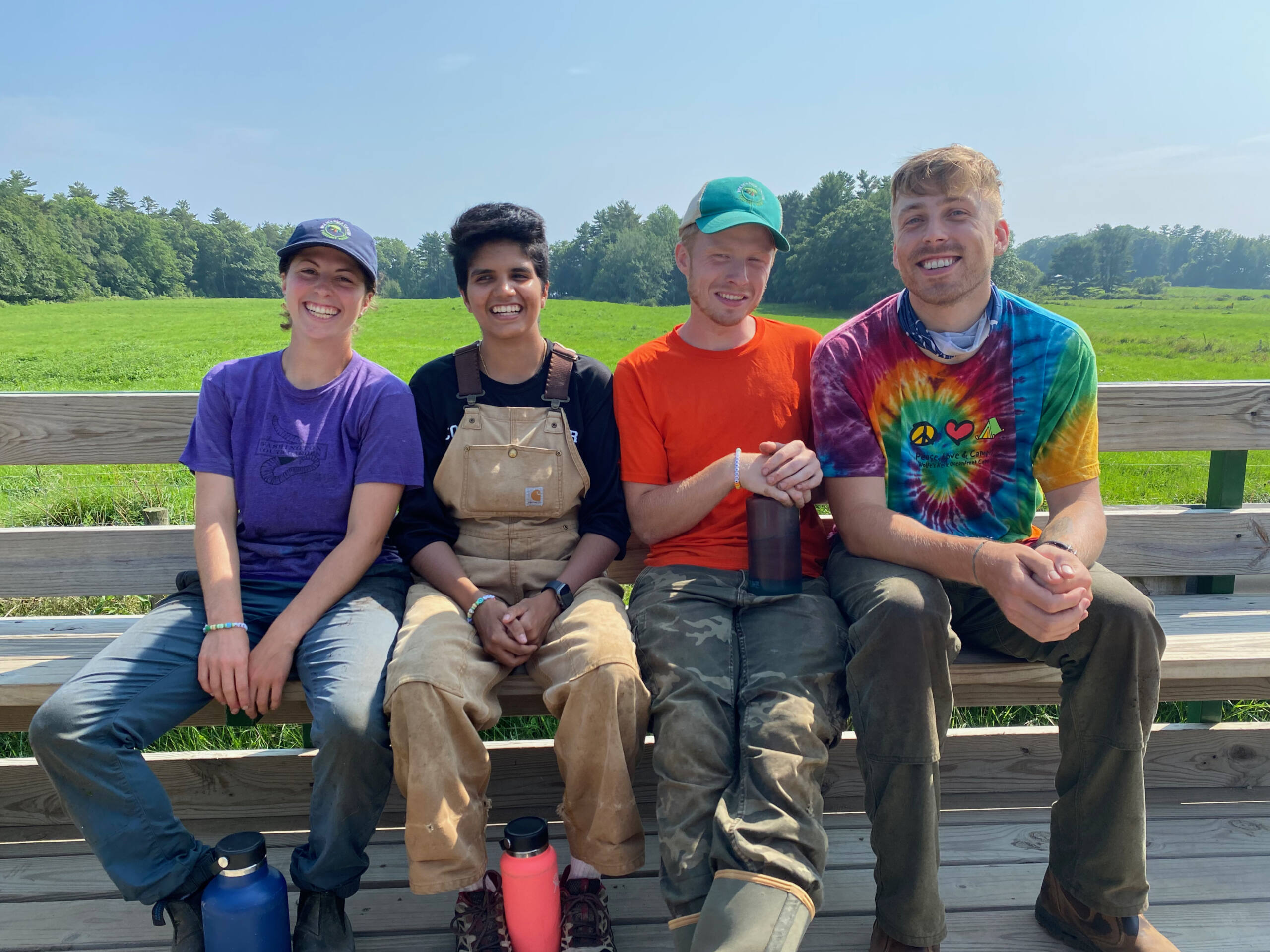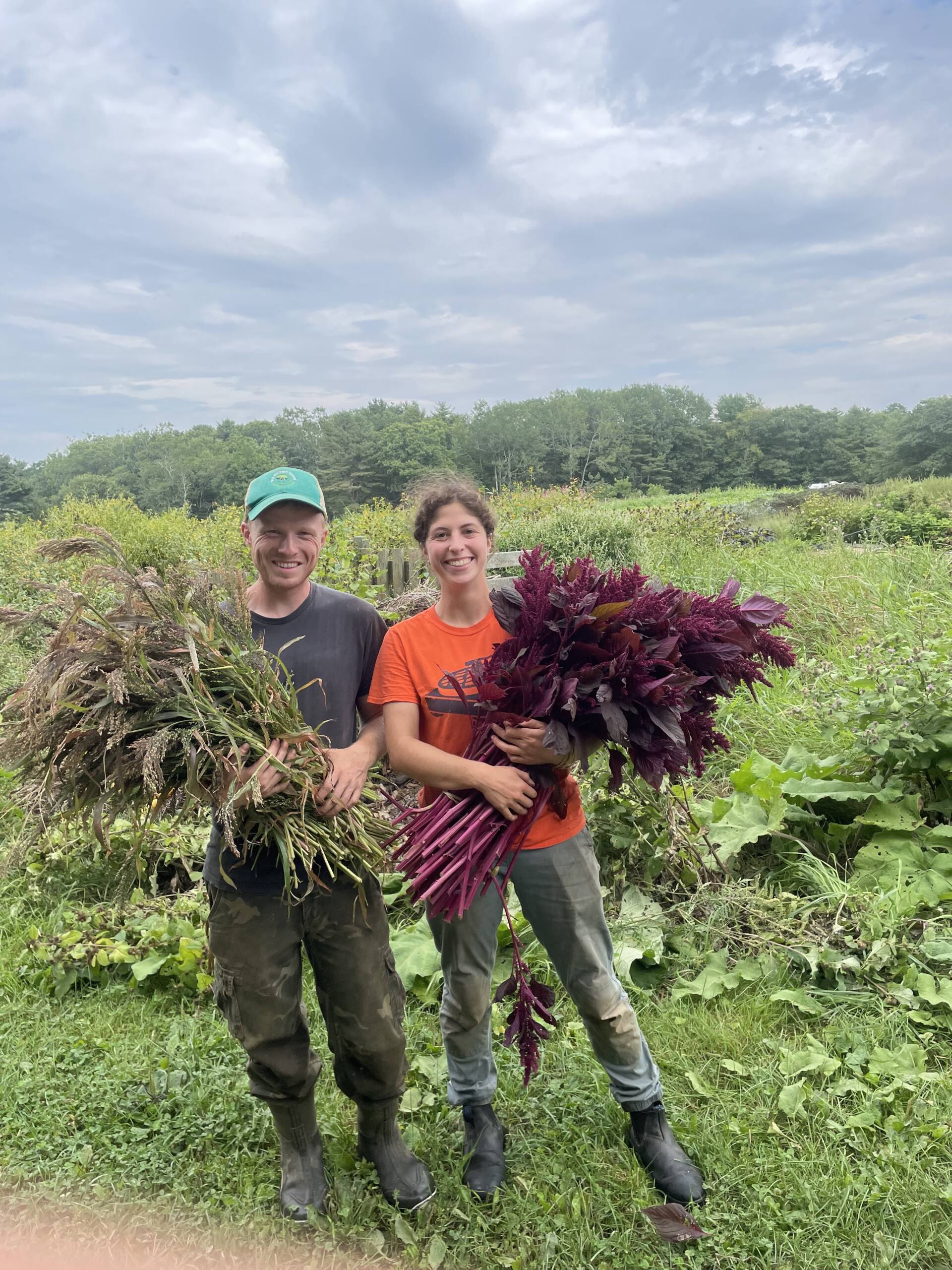Aditi, Colby College student and Fruit and Vegetable Production Intern
What path brought you to WNC?
I was a junior in college and looking to gain more experience and learn about the environment outside of the classroom. After learning about Wolfe’s neck and their efforts toward regenerative agriculture and organic produce, I applied for the opportunity!
What was the most important thing you learned here?
I learned about the amount of effort that goes into producing a single crop and the importance of a strong team. Farming is challenging and plans change by the minute because of weather, pests, and other things. But, when we work together, we overcome those challenges and hold each other up.
How will you take what you have learned/experienced here forward in life?
Farming has been affected by climate change and its consequences like changing weather, more pests, heat waves, and more. Food is the basis of our livelihoods and it is under threat due to rising temperature. I want to take this on-the-field experience and work with environmental justice and advocacy to bring change to our policies to reduce the effects of climate change.



